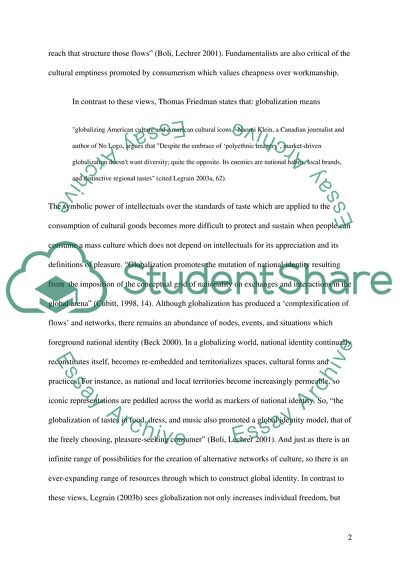Cite this document
(Globalization of Culture Essay Example | Topics and Well Written Essays - 1750 words, n.d.)
Globalization of Culture Essay Example | Topics and Well Written Essays - 1750 words. https://studentshare.org/culture/1502347-globalization-of-culture
Globalization of Culture Essay Example | Topics and Well Written Essays - 1750 words. https://studentshare.org/culture/1502347-globalization-of-culture
(Globalization of Culture Essay Example | Topics and Well Written Essays - 1750 Words)
Globalization of Culture Essay Example | Topics and Well Written Essays - 1750 Words. https://studentshare.org/culture/1502347-globalization-of-culture.
Globalization of Culture Essay Example | Topics and Well Written Essays - 1750 Words. https://studentshare.org/culture/1502347-globalization-of-culture.
“Globalization of Culture Essay Example | Topics and Well Written Essays - 1750 Words”. https://studentshare.org/culture/1502347-globalization-of-culture.


